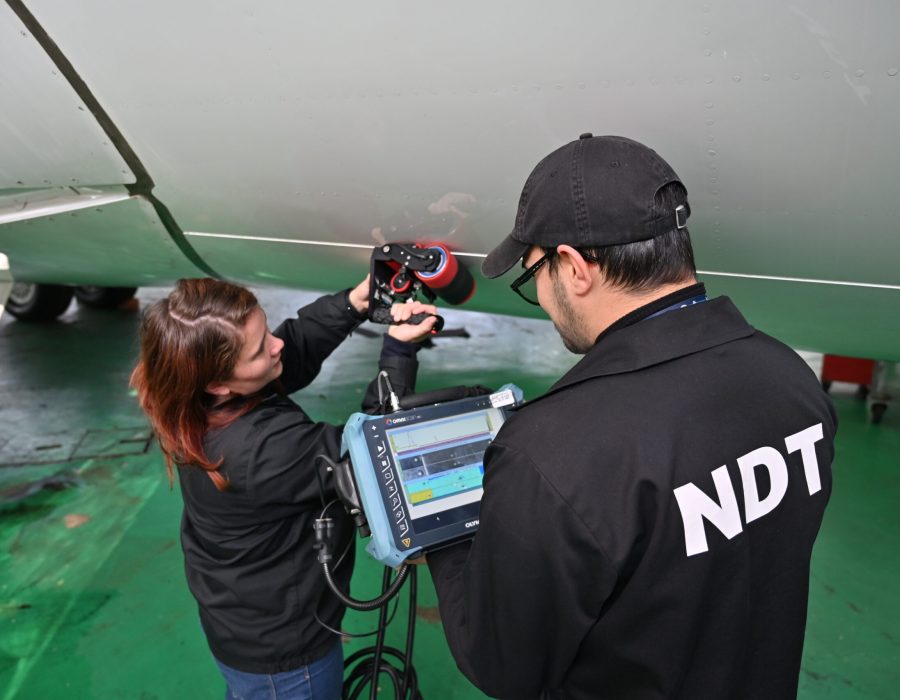Edit Content
- About us
- Products and Services
- Quality & Environment
- NDT Training Centre
- Qualifications & Assessment Centre
- Projects & Tenders
- Info & Media
- Event Reporting

Contact: Adelina DOGARIU
Head of CIP-NDT
E-mail: adelina.dogariu@aerostar.ro

Contact : Adelina TĂTARU
Head of CIP-NDT
E-mail: adelina.tataru@aerostar.ro
The NDT PERSONNEL TRAINING CENTER was established in 2002 with the purpose of meeting the training needs of NDT Level 1 and 2 operators for the nondestructive inspection methods and processes used at Aerostar S.A. Bacău.
CIP-NDT was authorized by the Romanian Civil Aviation Authority starting in 2003 (thus becoming the first NDT training centre in Romania for civil aviation).
With the establishment of RO-NANDTB (Romanian National Aerospace Association for Nondestructive Testing) and the recognition of this body by AACR and NADCAP, CIP-NDT obtained authorization from RO-NANDTB through Authorization Certificate no. 2/28.08.2020.
Both the course structure and the experience and knowledge of the instructors/examiners enable the training of personnel for nondestructive examinations in accordance with EN 4179/NAS410 in the following areas:
CIP – NDT Aerostar has material and human resources to perform trainings in the following fields:
CIP – NDT Aerostar is aligned with the specific requirements for aviation and offers: